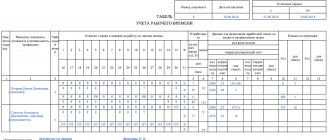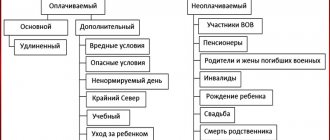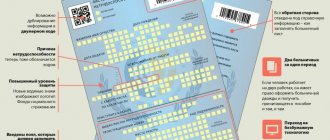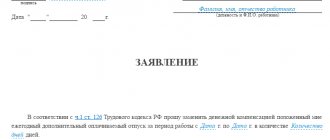What does the law say about donor days?
The rights of the donor are regulated by several legislative acts:
- Federal Law No. 125 of July 22, 2012. This is the main regulatory act that describes the donation procedure, as well as the rights of the person donating blood.
- Article No. 86 of the Labor Code. Indicates the need to provide rest days for donors.
- Order of the Ministry of Health No. 364 of September 14, 2001 Describes restrictions on blood donation. In particular, who cannot donate biomaterial.
Three parties are required to follow the rules of law:
- donor;
- medical organization where blood is drawn;
- donor's employer.
general information
Any adult resident of the Russian Federation who weighs more than 50 kg and has no contraindications can become a donor. Before blood collection, the future donor must:
- identification documents ;
- register and fill out the donor questionnaire :
- notify the doctor about all infectious diseases, vaccinations and operations performed during the last year;
- undergo a medical examination by a therapist;
- donate blood from your finger to study hemoglobin levels and other laboratory criteria.
Reference Information . All restrictions on donation are approved by Order of the Ministry of Health of the Russian Federation dated September 14, 2001 No. 364 “On approval of the procedure for medical examination of a blood donor and its components.” The legal and economic aspects of donation can be found in the Law of the Russian Federation dated July 20, 2012 No. 125 “On the donation of blood and its components.”
In modern medicine, there are several ways to perform the donor function:
- whole blood donation ;
- plasma donation ;
- cell donation .
Donating whole blood is one of the most common and simplest ways . Very often, not whole blood, but its individual components may be collected from a donor. Victims of accidents and fires need plasma. In this case, the donor undergoes plasmapheresis surgery - blood is taken from the cubital vein and centrifuged in a special apparatus for separating plasma.
Platelet donation is necessary for recipients with blood diseases and the possibility of bleeding.
Thrombopheresis is performed in a similar way to plasmapheresis, the only difference is that blood is withdrawn intermittently and in small doses. Treatment of rare diseases requires donor leukocytes. Their lifespan is very short, so leukocytapheresis is performed very rarely and only in emergency cases. Only young men can be donors for red blood cells.
In order to obtain the largest number of red blood cells, clinics and donor centers perform the procedure of erythrocytepheresis.
Payment for blood
One of the donor's incentives is financial compensation. Payment depends on the type of blood donated:
- whole blood – up to 650 rubles per 100 ml;
- plasma – up to 4600 rubles;
- red blood cells – up to 6100 rubles.
Funds are paid immediately after the collection of biomaterial. The amount depends on the blood type and volume. Thus, the maximum amount of compensation can be received when donating blood of group 4.
After collecting the biomaterial, each donor must be given a hot lunch. In recent years, the practice has been to issue compensation instead of food in the amount of 5% of the subsistence level in the region.
Employer Responsibilities
The Labor Code provides benefits for donors at work, regardless of place of service. These include:
- On the day of delivery of the biomaterial, the donor is released from work. He is given an extraordinary day off, which is intended for the purpose of rest and recuperation.
- At his own request and by agreement with the employer, the donor can begin his obligations on the day of blood donation. In this case, management is obliged to give him a day off on another day. This rule does not apply to persons working in hazardous work - rest must be on the day of the medical procedure.
- The procedure for providing time off for donating blood requires the employer to give the donor one more day off - the day after the medical procedure. An employee can compensate for unspent days off at another time, for example, by increasing annual leave.
- The employer is not exempt from the obligation to provide the donor with two days off in situations where the blood donation took place on holidays, weekends or the employee’s vacation. At your discretion, you can choose another period as compensation.
Advice. The employee can choose the vacation time for donor days independently. It is not important to rest after submitting the biomaterial. These days are allowed to be transferred to any date during the year.
Transfer days
Typically, donors prefer to add their rest days to their main vacation. In this case, it will not be possible to optimize calculations for calculating salary, since average earnings for these purposes are calculated differently. When calculating vacation pay, the salary is determined by dividing all accrued amounts for the billing period by 12 and by the average number of days in a month. Therefore, you first need to accrue vacation pay, and then compensation for blood donation.
Let's add the conditions of the previous example. Let's say the manager decided to add donor days to paid leave - from 04/10/17 to 04/24/17. The billing period remains the same - from 04/01/16 to 03/31/17. Number of working days - 248.
- Base for calculating vacation pay: 50,000 rubles. * 12 months / 12 / 29.3 (average number of days) = RUB 1,706.48.
- Base for calculating donor days: 556,421 / 228 = 2,440.44 rubles. (see previous calculations).
As you can see, the accrual amounts differ significantly. Therefore, compensation for vacation and donor days should be calculated separately.
How are donor days paid?
According to Russian law, donors must be paid for missed workdays. The amount is calculated based on average monthly earnings. Payment is due:
- day of collection of biomaterial;
- the next day provided for rest.
Many people are interested in who pays for donor days, whether the employer or the Social Insurance Fund. According to Russian law, management is responsible for compensating for missed work days. A request for payment or an increase in vacation must be submitted to the organization’s accounting department.
In exchange for days off, the donor has the right to receive financial compensation. This is done in two cases:
- According to the employee. A person who donated blood and did not use the weekend days due can receive monetary compensation in the amount of average earnings.
- Upon dismissal. In this case, unused rest days are compensated along with the period of unused rest.
Advice. The main thing is to keep within 1 year from the date of blood donation, otherwise the weekend will be “burnt out” and you will not be able to receive compensation for it. That is, you cannot accumulate several days over 2 or more years.
If the donor decides to go to work on the day of blood donation or the next day, it is recommended to write an application asking for permission to fulfill job obligations. This is necessary to prevent the imposition of sanctions on an employer who exploits a donor on the days of the required vacation. Fines for non-compliance with the law are quite large, so it is better not to take risks and document your desire to work.
Example 1
The donor employee underwent a medical examination on the working day of 09/01/16, donated blood and did not go to work the next day. His salary is 50,000 rubles. From 08/02/16 to 08/29/16 he was on paid leave. In August, he received a salary of 6,421 rubles. There are no other amounts or periods excluded from the calculation. The organization operates five days a week. How to pay for donor days?
- Billing period: from 09/01/2015 to 08/31/2016, that is, 248 working days.
- The total amount of payments for the year was: 50,000 * 11 + 6,421 = 556,421 rubles.
- Number of working days = 248 - 20 (vacation) = 228 days.
- Average daily earnings = 556,421 / 228 = 2,440.44 rubles.
- During the period of absence, the employee was accrued: 2,440.44 * 2 = 4,880.88 rubles.
Is it necessary to notify the employer?
A donor certificate, which is issued after the collection of biomaterial, is quite enough to ensure that the employer does not apply sanctions for missed days. Absence in this case is a valid reason, therefore, they have no right to levy fines, force them to work overtime, reprimand or dismiss such an employee. If management violates this rule, then you should contact the Labor Inspectorate or the prosecutor's office.
But in order not to spoil relations with management and colleagues, it is still worth informing at work in advance that a blood donation is planned. If the donor has planned the collection of biomaterial with good intentions, then the most convenient date for visiting a medical facility can be discussed. For example, move it to the weekend so that you can increase your vacation later or on less busy days.
However, many donors go to donate blood for the purpose of getting a day off (for example, on a birthday). In this case, it is worth warning management about your intentions several days in advance. There is no need to write an application.
In case of urgent blood donation, a verbal warning from the employer is sufficient. It is necessary to call management and report unplanned absenteeism.
Management Responsibility
Sometimes citizens are faced with the fact that authorities do not want to comply with legislation regarding donation. Managers try to save money and not pay for additional vacations.
In this situation, it is necessary to complain to the labor inspectorate. It is this organization that monitors the implementation of legislation in the field of relations between workers and employers.
As a last resort, you can go to court. This body always stands on the side of the donor, who performs an important mission for society.
How to arrange donor days at work
Absence from work on the day of blood sampling is a valid reason, but provided that the employee has provided a certificate. It is issued directly at the medical institution where the blood is drawn.
The donor receives two documents:
- a certificate in form No. 401/u, which confirms the fact of passing a medical examination before donating blood;
- a certificate in form No. 402/u confirming the fact of blood donation.
If a medical examination and collection of biomaterial are carried out on the same day, then only certificate No. 402/u is issued.
To register donor days and receive a subsidy at work, you will need to contact the accounting department or human resources department. The employee is given a sample application or memo, according to which he must fill out the paper. A certificate from a medical institution is attached to it.
How long is a donor certificate valid?
The donor certificate is valid for one year from the date of blood donation. Within 12 months, the employee can use it to receive compensation or increase vacation time. In the second case, the certificate is presented at the time of the formation of the donor's days off.
The employer does not have the right to refuse to provide an employee with additional vacation days if the donor certificate is presented several months after its receipt. A person donating blood can independently choose a day off, at any time of the year, but only for 12 months. After this, the right to rest disappears.
Features of using weekends
Based on Article 186 of the Labor Code of the Russian Federation, an employee, in connection with the performance of a public duty, acquires a number of benefits, in particular, additional days off, and paid ones.
At the same time, given that the worker is part of the production process, the question arises under what conditions can he take advantage of a well-deserved rest?
Can I use it on another day?
In Art. 186 of the Labor Code of the Russian Federation states that a worker who donates biological material for the benefit of ordinary citizens has the right to a number of labor benefits . In particular:
- taking the day off immediately after blood collection;
- the right to add a day off to the main vacation;
- the ability to choose a vacation date without taking into account production needs.
That is, in fact, the donor has every right to postpone the donor day to any date of his own choice.
Use with another employer
By law, donor days are provided only to working employees who, due to blood collection, are exempt from performing direct duties. Moreover, subsequently the employee can use the well-deserved donor day at any time, but only during the period of work at one enterprise .
Upon dismissal and new employment, benefits from the previous place of work in relation to the new position are not preserved, therefore, the donor can no longer use donor days that for some reason were not previously implemented.
was not in an employment relationship during the period of submitting the biological material , then he does not have the right to days off, since he performed his public duty in his personal time and did not require release from work.
Deadlines
Article 186 of the Labor Code of the Russian Federation states that donor days must be used within a year from the moment of blood collection, that is, the starting point in this situation will be the date indicated on certificate No. 402/u about blood collection, and not the calendar year, as some employers think. Moreover, if for some reason an employee during the year is unable to take advantage of the well-deserved donor days, they will be considered invalid and, therefore, the donor will not be able to use them.
Benefits for honorary donors
Every adult citizen can become an honorary donor to Russia. To do this, you will need to donate blood more than 40 times free of charge. Honorary donors are given a certificate and badge. They can also count on benefits:
- priority to receive a free trip to the sanatorium;
- providing vacation at a convenient time, at your request;
- priority receipt of assistance in municipal medical institutions.
Also, regional authorities can independently create benefits for honorary donors. For example, some cities offer incentives for people in this category:
- free travel on municipal transport;
- payment for housing and communal services with a 50% discount;
- free dental prosthetics in municipal clinics.
Honorary donors receive an annual compensation of 12,373 rubles. You need to register it with the social service at your place of registration. Funds are transferred to a bank account.
The donor day is paid according to the scheme described above. In this, honorary donors are no different from ordinary volunteers who decide to donate their blood for the first time for the sake of other people.
Donor days are a grace period during which monetary compensation and days off are provided to people who donate blood. They can count on an increase in vacation time or the issuance of money in exchange for unused vacation days.
Taxation
Having figured out how donor days at work are paid, we move on to the issue of taxation. The list of income on which personal income tax is not charged (Article 217 of the Tax Code of the Russian Federation) does not include the day of the medical procedure. According to Resolution of the Presidium of the Supreme Arbitration Court of the Russian Federation No. 104/14, payment of earnings is carried out in the presence of an employment relationship. Accordingly, insurance premiums are deducted from it. That is, payment for days of blood donation and deduction of taxes from these amounts is carried out on a general basis. Since these payments are made from the organization’s payroll, the base for calculating income tax is reduced. The amount of earnings and insurance premiums is included in expenses for operating activities.










